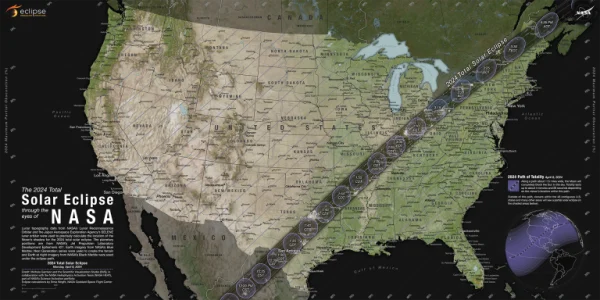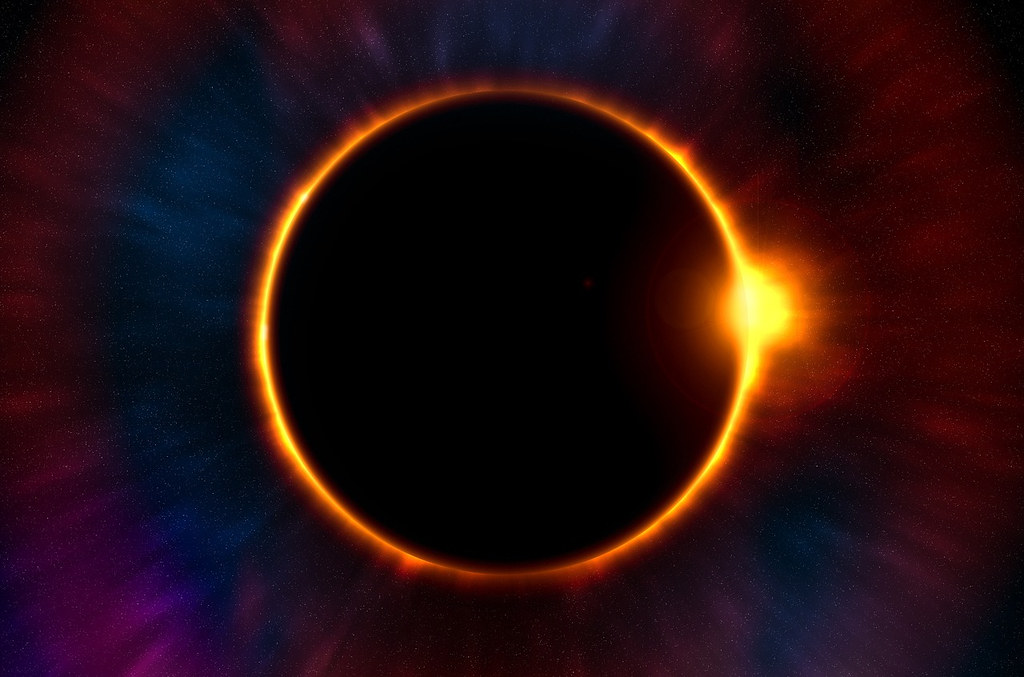In the past week, unorthodox events have hit the Northeast. Just last Wednesday, lightning struck the Statue of Liberty, and on Friday, New Jersey was shaken by a magnitude 4.8 earthquake, its most powerful one in over 240 years. Yet, things are about to get even more interesting when the United States experiences a total solar eclipse on Monday, April 8, the first since August 21, 2017, and the last until 2044.
By definition, a total solar eclipse is an event that occurs when the Moon completely blocks the face of the Sun from the Earth. In certain locations, the sky will become dark, similar to dawn or dusk. While the partial phases of the solar eclipse may last a few hours, the totality phase of darkness will only last for around four minutes.
As evident in the image below, the path of totality is expected to cover thirteen states and over 31.6 million people, while the remaining regions of the United States will only experience a partial solar eclipse, where the Moon does not entirely block the Sun.

Particularly for New Jersey, people can expect a partial solar eclipse, where around 90 – 95% of the Sun will be blocked by the Moon. The eclipse is expected to take place from 2:09 to 4:35 p.m. and will reach its peak at around 3:24 p.m. Cloudy weather could potentially disrupt the eclipse; however, there should be some breaks in the clouds to allow for a clear view.
For Delbarton students, the Research in Science Club will be hosting an event to observe the eclipse at the flagpole at 3:00 p.m. They will also be distributing glasses at lunch, and it is of the utmost importance that you wear them throughout the eclipse, as looking at the sun without them for even a short period could cause permanent damage to your retina.
However, this eclipse will not solely be for viewing. For starters, NASA will be capitalizing on the opportunity of the eclipse to gather data on the Sun and Earth by launching rockets and high-altitude planes. They will also be collaborating with the National Science Foundation to examine the impact that solar radiation has on upper layers of the Earth’s atmosphere. Additionally, many others across social media are citing biblical evidence to support their claims that this solar eclipse will end the world, a phenomenon that sparked controversy on social media in recent weeks.
Ultimately, it has been an uncanny few days in the Northeast, and this solar eclipse will certainly make these times even more unusual.




























